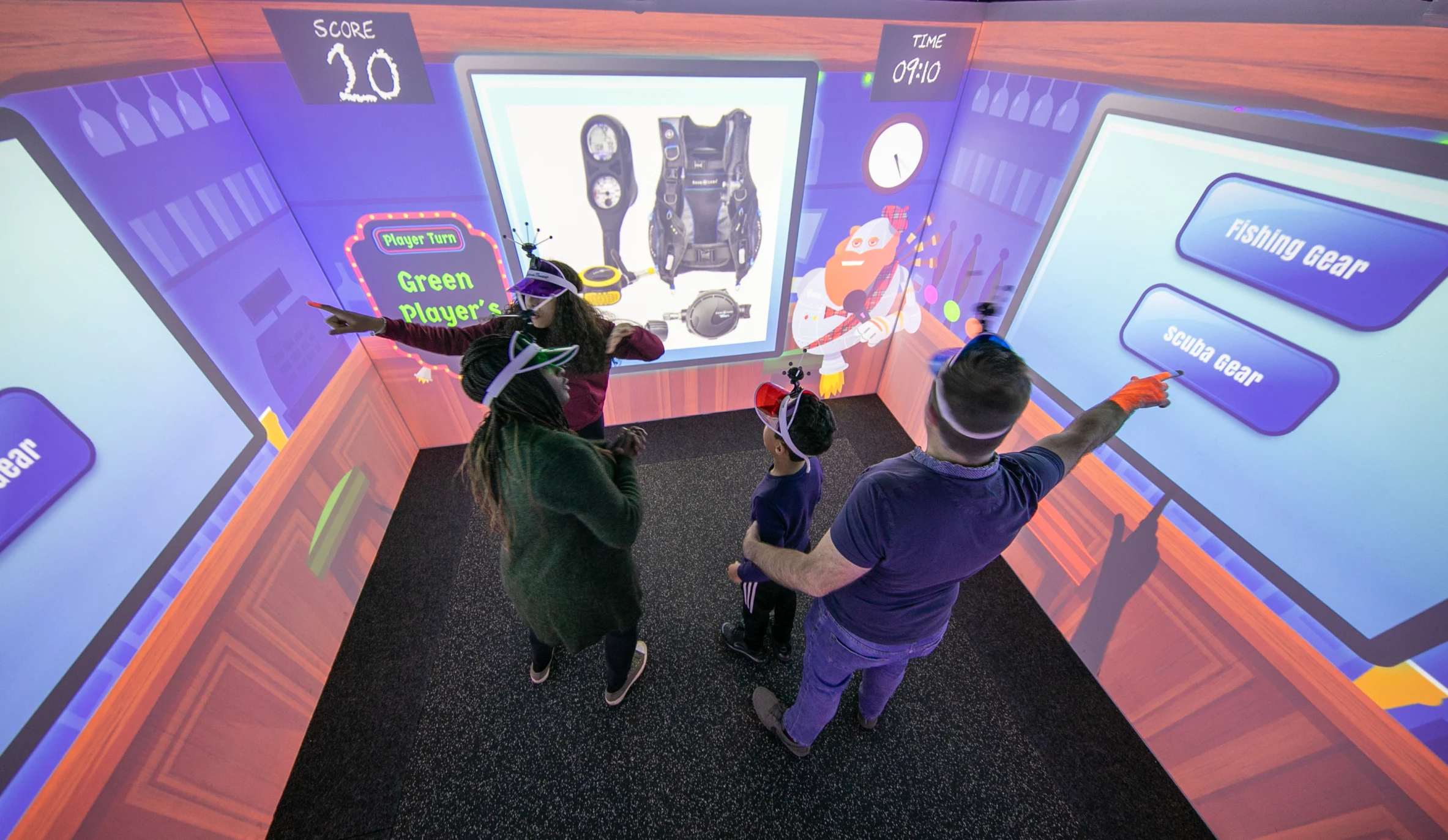The Fall (and Rise?) of Immersive Gamebox
Brief History of Immersive Gamebox
Immersive Gamebox was founded by Will Dean, a notable figure in the gaming and event industry known for his success with Tough Mudder. The company aimed to transform gaming by offering immersive group experiences that engage players in unique ways. Innovative concepts were developed, combining physical interaction and digital gaming elements.
Key Challenges Leading to Administration
Despite its ambitious vision, Immersive Gamebox faced significant hurdles:
- Game Mechanics: The core gameplay was counterintuitive and quirky. Players had to move their bodies inside the gaming space on a horizontal X-Y axis while their on-screen characters moved on a vertical plane. It was a goofy novel that was fun for a while, but didn’t provide game mechanics that lead to repeat play.
- Social Competition: The game was best played with a beer in hand. They tried to place themselves in the social competition space, but without a solid food and beverage offering the business model couldn’t compete with other concepts offering longer and more complete experiences.
- Go To Market Strategy: They were trying to both franchise standalone locations and offer concession-based installations. They used expensive optical tracking technology which made the product cost prohibitive compared to other emerging platforms like Qbix from Inowize and Valo Arena from Valo Motion. And the concept was too narrow for a standalone franchise business.
Trends in the Immersive Gaming Market That Affected the Company
The immersive gaming market has seen rapid evolution:
- Growing consumer interest in virtual reality (VR) and augmented reality (AR) experiences created new opportunities but also intensified competition. They tried to position their solution as superior to VR, but the experience was not immersive at all, as you were controlling the character on a screen. It was just a big video game.
- Increasing demand for shared gaming experiences among friends and family highlighted a trend towards social interaction in gaming settings. While it was multiplayer, the experience didn’t offer the hallmark, turn-based play of the most popular social experineces like bowling, mini-golf, and other social games.
Will New Investors Make a Difference?
The recent influx of new investors and management could tell the story of where the company is heading.
The involvement of Harlan Capital in this acquisition also raises questions about their long-term play. As an investment firm specializing in opportunistic and asset-based investments, Harlan tends to focus on distressed or underutilized assets with the potential for financial engineering rather than product innovation. Given that Immersive Gamebox went into administration before the acquisition, it’s possible Harlan sees an opportunity to streamline operations, restructure the business, and position it for resale or franchising rather than investing in growth.
This raises the question: Does Harlan Capital genuinely believe in the future of location-based immersive gaming, or is this a purely financial play? The appointment of board members with backgrounds in corporate restructuring, media licensing, and legal maneuvering—but little connection to gaming or location-based entertainment—suggests the latter. If Harlan’s goal is to reposition Immersive Gamebox as an IP licensing company rather than an operator of physical experiences, it could signal a shift away from the company’s original vision. Whether that’s a smart move or a miscalculation remains to be seen.
The new management team appointments at Immersive Gamebox following its acquisition by Harlan Capital—Dan Donahue, Stephen Colvin, and Brook Land—raise questions about the strategic direction of the company, as their backgrounds don’t immediately align with the core business of location-based immersive gaming.
- Dan Donahue (Former COO of ICM Partners)
- Coming from a talent agency, Donahue’s expertise lies in representation and deal-making in Hollywood, not in location-based entertainment or interactive gaming.
- While connections in media could help secure IP partnerships, it’s unclear how that would translate into operational improvements or the core technology that powers Immersive Gamebox.
- Stephen Colvin (Former Global COO of Bloomberg)
- With experience in media and publishing, Colvin has worked in high-level business operations but has no known background in interactive entertainment or LBE (Location-Based Entertainment).
- His appointment suggests an interest in financial restructuring or branding rather than any direct contributions to product innovation or expansion in the gaming sector.
- Brook Land (London-based Attorney, Extensive Media Experience)
- As an attorney with a media focus, Land might be useful for contract negotiations or IP licensing, but that doesn’t address the immediate challenges of running and growing a network of physical gaming locations.
- His presence suggests the company may be looking at legal maneuvers, restructuring, or acquisitions rather than operational improvements.
What This Means for Immersive Gamebox:
The lack of direct experience in location-based entertainment, gaming, or immersive technology among the new team members raises concerns about the company’s future direction. The appointments hint at a corporate and financial restructuring rather than a focus on innovation, customer experience, or operational efficiency. If Harlan Capital’s plan is simply to reposition Immersive Gamebox for a resale or licensing model, rather than investing in the gaming experience itself, this move could signal a shift away from immersive gaming as a core priority.



